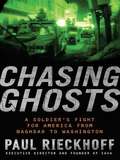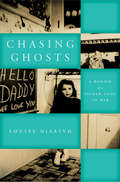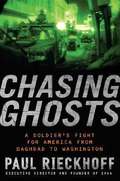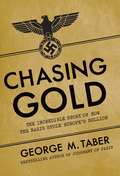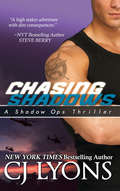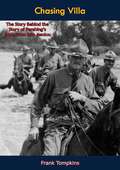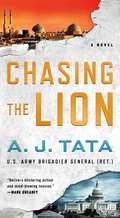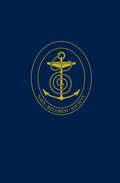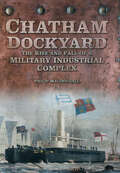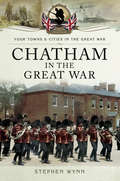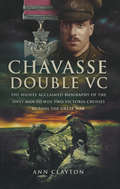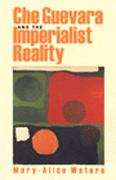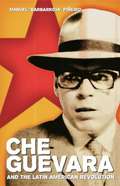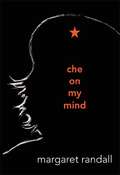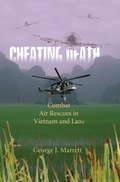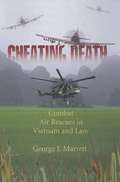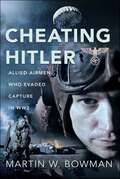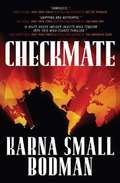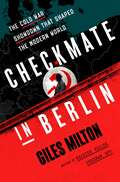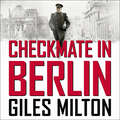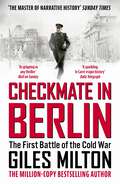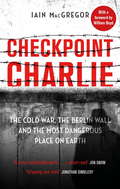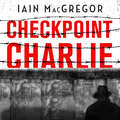- Table View
- List View
Chasing Ghosts
by Paul RieckhoffAs a First Lieutenant and Infantry Platoon Leader for the U. S. Army National Guard, Paul Rieckhoff was charged with leading thirty-eight men in Iraq. He spent almost a year in one of the bloodiest and most volatile areas of Baghdad. And when he finally came home, he vowed to tell Americans the harrowing truth. He does just that, uncensored and unrehearsed, "and with wit and passion" (Arianna Huffington), in Chasing Ghosts-the first criticism of the Iraq war written by a soldier who fought in it.
Chasing Ghosts: A Memoir of a Father, Gone to War (World War II: The Global Human and Ethical Dimension)
by Louise DesalvoWhen literary biographer and memoirist Louise DeSalvo embarked upon a journey to learn why her father came home from World War II a changed man, she didn’t realize her quest would take ten years, and that it would yield more revelations about the man—and herself—and the effect of his military service upon their family than she’d ever imagined. During his last years, as he told her about his life, DeSalvo began to understand that her obsession with war novels and military history wasn’t merely academic but rooted in her desire to understand this complex father whom she both adored and reviled because of his mistreatment of her. Although she at first believes she wants to uncover his story, the story of a man who was no hero but who was nonetheless adversely affected by the his military service, she learns that what she really wants is to recover the man that he was before he went away. As DeSalvo and her father uncover his past piece-by-piece, bit-by-bit, she learns about the dreams of a working-class man who entered the military in the late 1930s during peacetime to better himself, a man who wanted to become a pilot. She learns about what it was like for him to participate in war games in the Pacific prior to the war, and its devastating toll. She learns about what it was like for her parents to fall in love, set up house, marry, and have children during this cataclysmic time. And as the pieces of her father’s life fall into place as works to piece together the puzzle of everything she’s learned about this time, she finds herself finally able to understand him. Chasing Ghosts is an original contribution to the understanding of working-class World War II veterans who did not conventionally distinguish themselves through “heroic” actions and whose lives were not until recently considered worthy of historical or cultural attention. It personalizes the history of those sailors who served in the Navy aboard aircraft carriers and on islands in the Pacific prior to, and during World War II and contributes to the current vital conversation about the often-unrecognized effects of war and its traumas upon those men and their families. It reveals the lifelong devastating consequences of military service on those men and women who fell in love, married, and set up house. And it reveals the complexity of what it is like to be the daughter of a father who has gone to war.
Chasing Ghosts: A Soldier's Fight For America From Baghdad To Washington
by Paul RieckhoffAs a First Lieutenant and Infantry Platoon Leader for the U.S. Army National Guard charged with leading thirty-eight men in Iraq, Paul Rieckhoff followed in the footsteps of his father and grandfather. After Rieckhoff volunteered to take part in the invasion of Iraq, he and his soldiers spent almost a year in one of the most dangerous and volatile areas of Baghdad, where they struggled to maintain order, protect Iraqi civilians, track down insurgents, and defend themselves against sniper and roadside bomb attacks. But it was clear to Rieckhoff almost from the get-go that America's mission in Iraq was deeply flawed-and that his platoon was overchallenged and underequipped. If there was a plan to stabilize Baghdad after the invasion, no one had let them in on it. And with so many obstacles to overcome, they faced enemies that included thousands of armed, angry, and unemployed men who had been unleashed into the streets when the U.S. government disbanded the Iraqi army. The way that Rieckhoff responded to these and other challenges over the next ten months set him on a course that would forever change his life. And when Rieckhoff finally came home, he vowed to tell Americans the truth, however controversial, about what was going on in Iraq. He publicly demanded accountability from elected officials, created the first organization specifically for veterans of the wars in Iraq and Afghanistan, and took the new fight to the airwaves and the halls of power in Washington. For anyone who wonders what alternatives there are in Iraq to either "staying the course" or "cutting and running," Chasing Ghosts is an uncensored and unrehearsed statement from a war veteran, providing a candid grunt's-eye view of the harrowing, bloody battles on the streets, of Baghdad-and a patriot's vision of where America has gone wrong and how it Can reset its path. NOTE: There is strong language in this book, and descriptions of violence.
Chasing Gold: The Incredible Story of How the Nazis Stole Europe's Bullion
by George M. TaberIn the highly anticipated new book from the bestselling author of Judgement of Paris, George M. Taber reveals the integral role gold played in World War II, from its influence on the Nazi war machine to the ultimate triumph by the Allies and the fall of Berlin A USA Today "New and Notable" Book For the entire history of human civilization, gold has enraptured people around the globe. The Nazis was no less enthralled by it, and felt that gold was the solution to funding Hitler's war machine. Gold was also on the mind of FDR across the Atlantic, as he worked with Europe's other leaders to bring the United States and the rest of the world out of a severe depression. FDR was hardly the first head of state to turn to gold in difficult times. Throughout history, it has been the refuge of both nations and people in trouble, working at times when nothing else does. Desperate people can buy a loaf of bread or bribe a border guard. Gold can get desperate nations oil to keep tanks running or munitions to fight a war. If the price is right, there is always someone somewhere willing to buy or sell gold. And it was to become the Nazi's most important medium of exchange during the war. Chasing Gold is the story of how the Nazis attempted to grab Europe's gold to finance history's bloodiest war. It is filled with high drama and close escapes, laying bare the palate of human emotions. Walking through the tale are giants of world history, as well as ordinary people called upon to undertake heroic action in an extraordinary time.
Chasing Shadows (Shadow Ops #1)
by CJ LyonsAn undercover agent risks his life to take down a drug lord in this romantic suspense thriller by the New York Times–bestselling author of The Next Widow.Going undercover, playing the part of a disgraced former Marine, is easy for Chase Westin—until a Christmas Eve mission takes him back to his hometown and face to face with his estranged brother.When KC, an undercover FBI agent, flies into Chase’s life with her Doc Martens, purple, punk-rock hair, and Hollywood-hype leather and chains, Chase realizes that falling in love is more dangerous than catching bullets . . .Praise for New York Times–bestselling author CJ Lyons“Everything a great thriller should be—action packed, authentic, and intense.” —Lee Child, #1 New York Times–bestselling author “CJ Lyons scores a major triumph . . . Totally absorbing and impossible to put down.” —Douglas Preston, New York Times–bestselling author “A heroine you’ll never forget and a story that whips by at bullet speed. It’s easy to see why CJ Lyons is a perennial on the bestseller lists.” —Tess Gerritsen, New York Times–bestselling author“A high stakes adventure with dire consequences.” —Steve Berry, New York Times–bestselling author“I love how the characters come alive on every page.” —Jeffery Deaver, New York Times–bestselling author
Chasing Villa: The Story Behind the Story of Pershing’s Expedition into Mexico (Stackpole Classics Ser.)
by Frank TompkinsChasing Villa is a record of events in Western history, military history, the Mexican Revolution, and the last of the horse cavalry. Following its first publication in 1934, U.S. Army Colonel Frank Tompkins’ account of the Punitive Expedition by a participant became widely considered to be one of the most comprehensive.The book tells the story of the Columbus Raid and Pershing’s Expedition into Mexico. On March 9, 1916 the border town of Columbus, New Mexico was attacked by forces under the command of the Mexican revolutionary, Pancho Villa. Eighteen Americans were killed and a number of buildings were burned to the ground before the U.S. Cavalry, inflicting heavy losses, drove Villa and his mounted band back into Mexico. Frank Tompkins, a Major in the U.S. Cavalry at the time, led the counterattack against Villa’s mounted men on March 9th, and was with General John “Black Jack” Pershing during the subsequent year-long “Punitive Expedition” that sought to capture the elusive Villa in Mexico. The Columbus Raid and Punitive Expedition proved to be the last major campaign of the U.S. Cavalry. At the same time it presaged the more modern military techniques that would soon be employed by American forces in World War I. First published in 1934 and long out of print, “Chasing Villa” is a sound and literate record of milestone events in Western history, military history, the Mexican revolution, and the last of the horse cavalry.
Chasing the King of Hearts
by Hanna KrallWinner of the 2018 PEN Translation Prize. “Krall’s newly translated story of love during the Holocaust is a profound and uplifting masterpiece.” —The GuardianIn this canonical work of Polish reportage, Hanna Krall crafts a terse and unexpected human lesson out of a Holocaust novel and love story. A raw interplay of history and fiction spanning the Warsaw Ghetto, Auschwitz, and Zionist Israel, this bestselling novel won the English PEN Award and the Found in Translation Award.One of Publishers Weekly’s Best Books of 2017“The prose never once seems out of the author’s control, displaying precisely the serious artistry required to elevate and illuminate such harrowing material.” —Publishers Weekly (starred review)“Krall’s unique voice . . . dominates this detached, surreal, curiously playful tale of a woman of indefatigable resourcefulness trapped between history and her heart. A quirky but exceptional story of infinite love and life-sustaining commitment.” —Kirkus Reviews (starred review)“Hanna Krall brings Izolda R. to life through dry, factual, rhythmic prose—a litany whose cumulative effect powerfully endears her to readers.” —Slavenka Drakulic, author of Café Europa Revisted“A stirring and powerful document that, while marvelously concise, stands at the crossroads of the horrible history of humanity in the twentieth century.” —Eric Alterman, New York Times-bestselling author of Lying in State“A remarkable find . . . The style is bluntly simple, like the affectless telling of a fable. The reader is held at a distance by a tone that is so studiedly neutral as to be almost jaunty, yet because it is relating the most appalling atrocities it becomes the more affecting.” —The Sunday Times
Chasing the Lion: A Garrett Sinclair Novel (Garrett Sinclair #1)
by A. J. Tata"Readers are going to love Garrett Sinclair, who reads like this generation's Jason Bourne." —Ryan Steck"If you are looking for a good night’s sleep, leave this one in the nightstand." —Jack CarrParizad rose through his nation’s military to become a lethal soldier and brilliant tactical commander. Now a general, he leads Quds Force, an extremist terrorist organization targeting America and its western allies.The United States has just uncovered a biochemical weapon developed by Parizad’s group. A viral agent, it attacks a person’s nervous system and renders them susceptible to mind control. Parizad plans to unleash the weapon in Washington D. C. on Inauguration Day during the swearing in of the country’s first female president, turning civilians into weapons.Army Lieutenant General Garrett Sinclair and his Joint Special Operations team are assigned to stop the terrorist strike. Sinclair pursues Parizad across the Middle East, Europe, and in the U.S., only to discover a deeper conspiracy—a revelation that his wife may not have died from cancer but was murdered. Separated from his teammates and unsure of who he can trust, Sinclair is on a mission not only to save his country, but to avenge his family.
Chatham Dockyard, 1815-1865: The Industrial Transformation (Navy Records Society Publications #154)
by Philip MacdougallBy the end of the Napoleonic Wars, the seven home dockyards of the British Royal Navy employed a workforce of nearly 16,000 men and some women. On account of their size, dockyards add much to our understanding of developing social processes as they pioneered systems of recruitment, training and supervision of large-scale workforces. From 1815-1865 the make-up of those workforces changed with metal working skills replacing wood working skills as dockyards fully harnessed the use of steam and made the conversion from constructing ships of timber to those of iron. The impact on industrial relations and on the environment of the yards was enormous. Concentrating on the yard at Chatham, the book examines how the day-to-day running of a major centre of industrial production changed during this period of transition. The Admiralty decision to build at Chatham the Achilles, the first iron ship to be constructed in a royal dockyard, placed that yard at the forefront of technological change. Had Chatham failed to complete the task satisfactorily, the future of the royal dockyards might have been very different.
Chatham Dockyard: The Rise and Fall of a Military Industrial Complex
by Philip MacDougall Philip MacdougallFounded in 1570, Chatham Dockyard quickly became one of the most important naval yards for the repair and building of warships, maintaining a pre-eminent position for the next 400 years. Located on the River Medway, in all, the yard was responsible for the construction of over 500 warships, these ranging from simple naval pinnaces through to first-rates that fought at Trafalgar, and concluding with the hunter-killer submarines of the nuclear age. In this detailed new history of the yard from experienced local and maritime author Philip MacDougall, particular attention is given to the final two hundred years of the yard’s history, the artisans and labourers who worked there and the changing methods used in the construction of some of the finest warships to enter naval service. Coinciding with the dockyard’s seeking status as a World Heritage site, this fascinating history places Chatham firmly in its overall historical context.
Chatham in the Great War (Your Towns And Cities In The Great War Ser.)
by Stephen WynnChatham played a very important part in the nation's Great War effort. It was one of the British Royal Navy's three 'Manning Ports', with more than a third of the town's ships manned by men allocated to the Chatham Division. The war was only 6 weeks old when Chatham felt the affects of war for the first time. On 22 September 1914, three Royal Naval vessels from the Chatham Division, HMS Aboukir, Cressy and Hogue, were sunk in quick succession by a German submarine, U-9. A total of 1,459 men lost their lives that day, 1,260 of whom were from the Chatham Division. Two months later, on 26 November, the battleship HMS Bulwark exploded and sunk whilst at anchor off of Sheerness on the Kent coast. There was a loss of 736 men, many of whom were from the Chatham area.On 18 August 1914, Private 6737 Walter Henry Smith, who was nineteen and serving with the 6th Battalion, Middlesex Regiment, became the first person to be killed during wartime Chatham. He was on sentry duty with a colleague, who accidentally dropped his loaded rifle, discharging a bullet that struck Private Smith and killed him.It wasn't all doom and gloom, however. Winston Churchill, as the First Lord of the Admiralty, visited Chatham early on in the war, on 30 August 1914. On 18 September 1915, two German prisoners of war, Lieutenant Otto Thelen and Lieutenant Hans Keilback, escaped from Donnington Hall in Leicestershire. At first, it was believed they had escaped the country and were on their way back to Germany, but they were re-captured in Chatham four days later.By the end of the war, Chatham and the men who were stationed there had truly played their part in ensuring a historic Allied victory.
Chavasse, Double VC: The Highly Acclaimed Biography of the Only Man to Win Two Victoria Crosses During the Great War
by Ann ClaytonMany heroes emerged during the First World War, but only one man was twice awarded the Victoria Cross during that conflict. This was Captain Noel Godfrey Chavasse, serving in the Royal Army Medical Corps as Medical Officer to the 10th Battalion, the Kings (Liverpool Regiment)—the Liverpool Scottish. The author has unearthed a forgotten archive of his letters from the Front and been allowed access to the Chavasse family correspondence, photographs and other documents. The result is a fascinating study of a man who, while typical in almost every way of the Victorian/Edwardian middle class stands out for his simple courage and unflinching devotion to duty. This is a deeply moving story about a modest but heroic man seen against the background of his devoted family and the grim realities of the First World War.
Che Guevara and the Imperialist Reality
by Mary-Alice WatersThe world of capitalist disorder and the imperialist reality of the 21st century would not be strange to Che, Waters explains. "Far from being dismayed by the odds we face, he would have examined the world with scientific precision and charted a course to win." Photos, notes.
Che Guevara and the Latin American Revolution
by Luis Suárez Manuel Barbarroja PiñeiroManuel Piñeiro, known as "Barbarroja" (Red Beard) was a figure of great mystery for decades, who oversaw Cuba's operations in Latin America and Africa and in this work closely collaborated with Che Guevara. Pineiro first spoke out publicly only in 1997, but died in a car crash shortly afterwards. Pineiro offers some fascinating insights into Che's Latin American strategy and answers the accusation that Che left Cuba because he was disaffected and that Fidel Castro abandoned him when the Bolivia mission began to fail.
Che on My Mind
by Margaret RandallChe on My Mind is an impressionistic look at the life, death, and legacy of Che Guevara by the renowned feminist poet and activist Margaret Randall. Recalling an era and this figure, she writes, "I am old enough to remember the world in which [Che] lived. I was part of that world, and it remains a part of me. " Randall participated in the Mexican student movement of 1968 and eventually was forced to leave the country. She arrived in Cuba in 1969, less than two years after Che's death, and lived there until 1980. She became friends with several of Che's family members, friends, and compatriots. In Che on My Mind she reflects on his relationships with his family and fellow insurgents, including Fidel Castro. She is deeply admiring of Che's integrity and charisma and frank about what she sees as his strategic errors. Randall concludes by reflecting on the inspiration and lessons that Che's struggles might offer early twenty-first-century social justice activists and freedom fighters.
Cheating Death: Combat Air Rescues in Vietnam and Laos
by George J. MarrettThey flew low and slow, at treetop level, at night, in monsoons, and in point-blank range of enemy guns and missiles. They were missions no one else wanted, but the ones all other pilots prayed for when shot down. Flying the World War II-vintage Douglas A-1 Skyraider, a single-engine, propeller-driven relic in a war of "fast-movers," these intrepid US Air Force pilots, call sign Sandy, risked their lives with every mission to rescue thousands of downed Navy and Air Force pilots.With a flashback memory and a style all his own, George J. Marrett depicts some of the most dangerous aerial combat of any war. The thrilling rescue of "Streetcar 304" and William Jones's selfless act of heroism that earned him the Medal of Honor are but two of the compelling tales he recounts. Here too are the courages Jolly Green Giant helicopter crews, parajumpers, and forward air controllers who worked with the Sandys over heavily defended jungles and mountains well behind enemy lines.Passionate, mordantly witty, and filled with heart-pounding adrenaline, Cheating Death reads like the finest combat fiction, but it is the real deal: its heroes, cowards, jokers, and casualties all have names and faces readers will find difficult to forget.
Cheating Death: Combat Rescues in Vietnam and Laos
by George J. MarrettA gripping account of the US Air Force pilots who risked their lives rescuing thousands of downed pilots during covert missions in the Vietnam War. The colorful characters and daring rescues of downed pilots engaged in the Secret War in North Vietnam and Laos are vividly captured by one who was there, in some of the most exciting stories ever written about aerial combat. Sandy Marrett and his squadron colleagues flew some of the most dangerous air missions of the war as on-scene commanders, in charge of rescuing the scores of US Navy and Air Force pilots shot down over North Vietnam and Laos.A Main Selection of the Military Book Club &“A great read for everyone and a must book for all aviation enthusiasts.&” —C. E. &“Bud&” Anderson, World War II triple ace and author of To Fly and Fight &“&‘That others may live&’ was their motto and each of us who flew in that war knew should our luck run out they would be there. I cannot recount the times pilots were plucked out of enemy territory, or out of the jungle trees of Laos by those brave men whose call signs were Sandy and Jolly Green. Often they gave their own lives to save another. Greater love hath no man than that. To each of them I give my everlasting respect, admiration, and deep affection. Reach into your hearts as you read this book and understand the lengths to which men can love and support one another in the times of stress. It will make you just a bit prouder to be an American.&” —Robin Olds, retired general and triple ace
Cheating Hitler: Allied Airmen Who Evaded Capture in WW2
by Martin W. Bowman"The reader anxious or merely curious to know what it was like to flee under the threat of being shot or capture will experience it all here." —ARGunners.com For most, and particularly the injured and the wounded, being shot down over Occupied Europe during the Second World War meant that capture was immediate, that imprisonment was almost inevitable. For some, evasion was possible, but rarely for long. For a relative handful, however, their evasion saw them eventually reach home once again. In this fascinating insight into how some Allied aircrew achieved the almost impossible and evade capture, the renowned aviation historian Martin W. Bowman has drawn together a set of tales of just some of these individuals. They are stories that illustrate the bravery and resourcefulness that characterized their experiences. British, American, Canadian and other Allied testimonies all feature to provide an authentic sense of the times at hand and the reality of life as an evader during this tumultuous and incredibly dangerous time. The stories of some Allied airmen, faced with sudden leaps into that dangerous unknown and their subsequent attempts at evasion, are retold here, many for the first time. Those who successfully evaded and were ‘free to fight again’ were few. Some were forced to remain in hiding under the guiding hands of the likes of the French Resistance or the patriots of the Comète Line – a few of the many who risked their lives helping Allied airmen, either to escape or to remain hidden until liberation, on pain of imprisonment, torture and death by their Nazi oppressors. Despite the threat of such retaliation, it has been said that as many as 100,000 people may have assisted evaders on one or more occasions before the war in Europe was brought to an end. This series of intoxicating chapters of evasion and life under the constant threat of recapture by the Nazis goes one step further in the drama of the war fought in the skies over the Third Reich and the subjugated countries of France, Belgium and Holland, revealing the constant nagging, and very real, fear that was endured by evaders and rescuers alike.
Chechnya’s Secret Wartime Diplomacy
by Nicholas Daniloff Ilyas AkhmadovThis volume makes available transcripts and commentary from the secret correspondence between former Chechen foreign minister Ilyas Akhmatov and Chechen President Aslan Maskhadov. This correspondence provides revelatory insights into both men's attempts to secure Western support for a peaceful transition to an independent Chechnya.
Checkmate
by Karna Small BodmanWhen Dr. Cameron Talbot invents a breakthrough technology to defend against cruise missiles, she needs funding from a reluctant Congress and help from the White House to develop her project. Lt. Col. Hunt Daniels, detailed from the Pentagon to the White House National Security Council, sees the potential of this incredible invention. But disaster is brewing overseas as militants steal several missiles and launch the first one against India. The militants also send one of their agents to Washington, DC, to steal Dr. Talbot's new technology. The scientist and the NSC staffer find themselves enmeshed in terrorist plots and political wrangling at the highest levels. From the Oval Office to the Taj Mahal, the tension and intrigue escalates and brings two countries to the brink of war.
Checkmate in Berlin: The Cold War Showdown That Shaped the Modern World
by Giles MiltonFrom a master of popular history, the lively, immersive story of the race to seize Berlin in the aftermath of World War II as it’s never been told before BERLIN’S FATE WAS SEALED AT THE 1945 YALTA CONFERENCE: the city, along with the rest of Germany, was to be carved up among the victorious powers— the United States, Britain, France, and the Soviet Union. On paper, it seemed a pragmatic solution. In reality, once the four powers were no longer united by the common purpose of defeating Germany, they wasted little time reverting to their prewar hostility toward—and suspicion of—one another. The veneer of civility between the Western allies and the Soviets was to break down in spectacular fashion in Berlin. Rival systems, rival ideologies, and rival personalities ensured that the German capital became an explosive battleground.The warring leaders who ran Berlin’s four sectors were charismatic, mercurial men, and Giles Milton brings them all to rich and thrilling life here. We meet unforgettable individuals like America’s explosive Frank “Howlin’ Mad” Howley, a brusque sharp-tongued colonel with a relish for mischief and a loathing for all Russians. Appointed commandant of the city’s American sector, Howley fought an intensely personal battle against his wily nemesis, General Alexander Kotikov, commandant of the Soviet sector. Kotikov oozed charm as he proposed vodka toasts at his alcohol-fueled parties, but Howley correctly suspected his Soviet rival was Stalin’s agent, appointed to evict the Western allies from Berlin and ultimately from Germany as well.Throughout, Checkmate in Berlin recounts the first battle of the Cold War as we’ve never before seen it. An exhilarating tale of intense rivalry and raw power, it is above all a story of flawed individuals who were determined to win, and Milton does a masterful job of weaving between all the key players’ motivations and thinking at every turn. A story of unprecedented human drama, it’s one that had a profound, and often underestimated, shaping force on the modern world – one that’s still felt today.
Checkmate in Berlin: The Cold War Showdown That Shaped the Modern World
by Giles MiltonA compulsive listen about the battle for Berlin and control of the Western world in the aftermath of the Second World War from 'the master of narrative history'.Berlin was in ruins when Soviet forces fought their way towards the Reichstag in the spring of 1945. Streets were choked with rubble, power supplies severed and the population close to starvation. The arrival of the Soviet army heralded yet greater terrors: the city's civilians were to suffer rape, looting and horrific violence. Worse still, they faced a future with neither certainty nor hope.Berlin's fate had been sealed four months earlier at the Yalta Conference. The city, along with the rest of Germany, was to be carved up between the victorious powers - British, American, French and Soviet. On paper, it seemed a pragmatic solution; in reality, it fired the starting gun for the Cold War. As soon as the four powers were no longer united by the common purpose of defeating Germany, they reverted to their pre-war hostility and suspicion. Rival systems, rival ideologies and rival personalities ensured that Berlin became an explosive battleground. The ruins of this once-great city were soon awash with spies, gangsters and black-marketeers, all of whom sought to profit from the disarray. For the next four years, a handful of charismatic but flawed individuals - British, American and Soviet - fought an intensely personal battle over the future of Germany, Europe and the entire free world.CHECKMATE IN BERLIN tells this exhilarating, high-stakes tale of grit, skullduggery, and raw power. From the high politics of Yalta to the desperate scramble to break the Soviet stranglehold of Berlin with the greatest aerial operation in history, this is the epic story of the first battle of the Cold War and how it shaped the modern world.(P)2021 Hodder & Stoughton Limited
Checkmate in Berlin: The Cold War Showdown that Shaped the Modern World
by Giles Milton'Brilliantly recapturing the febrile atmosphere of Berlin in the first four years after the Second World War, Giles Milton reminds us what an excellent story-teller he is' - Andrew Roberts, author of Churchill: Walking with DestinyBerlin was in ruins when Soviet forces fought their way towards the Reichstag in the spring of 1945. Streets were choked with rubble, power supplies severed and the population close to starvation. The arrival of the Soviet army heralded yet greater terrors: the city's civilians were to suffer rape, looting and horrific violence. Worse still, they faced a future with neither certainty nor hope.Berlin's fate had been sealed four months earlier at the Yalta Conference. The city, along with the rest of Germany, was to be carved up between the victorious powers - British, American, French and Soviet. On paper, it seemed a pragmatic solution; in reality, it fired the starting gun for the Cold War. As soon as the four powers were no longer united by the common purpose of defeating Germany, they reverted to their pre-war hostility and suspicion. Rival systems, rival ideologies and rival personalities ensured that Berlin became an explosive battleground. The ruins of this once-great city were soon awash with spies, gangsters and black-marketeers, all of whom sought to profit from the disarray. For the next four years, a handful of charismatic but flawed individuals - British, American and Soviet - fought an intensely personal battle over the future of Germany, Europe and the entire free world.CHECKMATE IN BERLIN tells this exhilarating, high-stakes tale of grit, skullduggery, and raw power. From the high politics of Yalta to the desperate scramble to break the Soviet stranglehold of Berlin with the greatest aerial operation in history, this is the epic story of the first battle of the Cold War and how it shaped the modern world.
Checkpoint Charlie: The Cold War, the Berlin Wall and the Most Dangerous Place on Earth
by Iain MacGregor'As convoluted and deadly as the plot of a novel by John le Carre, but all too real' Daily Mail, Must Reads'With a gripping narrative and vivid interviews with those on all sides whose lives were directly affected by that grim symbol of the East-West divide that poisoned Europe for almost half a century, [MacGregor] has made an important contribution to the history of our times' Jonathan Dimbleby'Captures brilliantly and comprehensively both the danger and exhilaration that I and other reporters, soldiers, and people experienced intersecting with the wall - a must-read for anyone who wants to understand the Europe we have inherited' Jon SnowA powerful, fascinating, and ground-breaking history of Checkpoint Charlie, the legendary and most important military gate on the border of East and West Berlin where the United States and her allies confronted the USSR during the Cold War.As the thirtieth anniversary of the fall of the Berlin Wall approaches in 2019, Iain MacGregor captures the mistrust, oppression, paranoia, and fear that gripped the city throughout this period. Checkpoint Charlie is about the nerve-wracking confrontation between the West and the Soviet Union that contains never-before-heard interviews with the men who built and dismantled the Wall; lovers who crossed it; relatives and friends who lost family trying to escape over it; German, British, French, and Russian soldiers who guarded its checkpoints; CIA, MI6 and Stasi operatives who oversaw secret operations across its borders; politicians whose ambitions shaped it; journalists who recorded its story; and many more whose living memories contributed to the full story of Checkpoint Charlie. A brilliant work of historical journalism, Checkpoint Charlie is an invaluable record of this period.
Checkpoint Charlie: The Cold War, the Berlin Wall and the Most Dangerous Place on Earth
by Iain MacGregor'A lively, evocative account of the life and death of the world's most notorious wall. In capturing the essence of the old Cold War he may just have helped us to understand a bit more about the new one' The Times'Checkpoint Charlie is a fascinating and telling reminder of what was perhaps the most potent symbol of the Cold War . . . Iain MacGregor writes with great fluency and narrative drive' William Boyd, New Statesman 'A rich collection of tales from cold war Berlin captures the city's mad complexities' Observer'With a gripping narrative and vivid interviews with those on all sides whose lives were directly affected by that grim symbol of the East-West divide that poisoned Europe for almost half a century, [MacGregor] has made an important contribution to the history of our times' Jonathan Dimbleby'Captures brilliantly and comprehensively both the danger and exhilaration that I and other reporters, soldiers, and people experienced intersecting with the wall - a must-read for anyone who wants to understand the Europe we have inherited' Jon SnowA powerful, fascinating, and groundbreaking history of Checkpoint Charlie, the legendary and most important military gate on the border of East and West Berlin where the United States and her allies confronted the USSR during the Cold War.As the thirtieth anniversary of the fall of the Berlin Wall approaches in 2019, Iain MacGregor captures the mistrust, oppression, paranoia, and fear that gripped the city throughout this period. Checkpoint Charlie is about the nerve-wracking confrontation between the West and the Soviet Union that contains never-before-heard interviews with the men who built and dismantled the Wall; lovers who crossed it; relatives and friends who lost family trying to escape over it; German, British, French, and Russian soldiers who guarded its checkpoints; CIA, MI6 and Stasi operatives who oversaw secret operations across its borders; politicians whose ambitions shaped it; journalists who recorded its story; and many more whose living memories contributed to the full story of Checkpoint Charlie. A brilliant work of historical journalism, Checkpoint Charlie is an invaluable record of this period.
